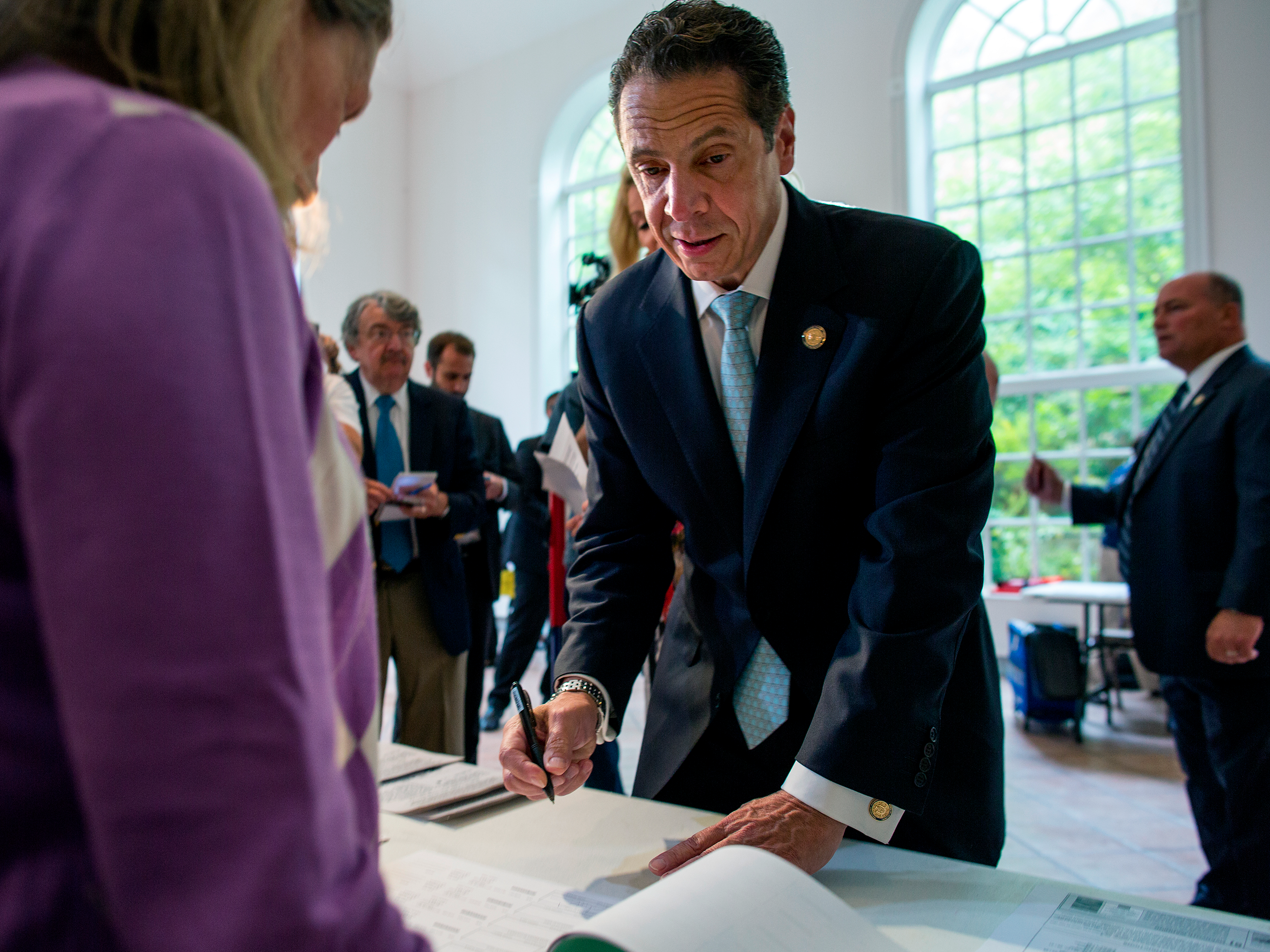Governor Andrew Cuomo has signed into law a bill that could deal a blow to Airbnb’s operations in New York State.
The bill is a follow-on to a 2010 law that bans rentals of less than 30 days in a multi-unit building if the tenant is not present, which was aimed at cracking down on illegal hotels.
The 2016 bill bans the advertising of such rentals, meaning that hosts could not list a full apartment for rent on Airbnb for less than 30-day increments. Hosts caught listing their unit would be fined up to $7,500 – more than most Airbnb hosts in New York make in a year.
The bill passed in both houses of the New York State Legislature in June and arrived on Cuomo’s desk on Tuesday, meaning that the governor had 10 days to make his decision. The governor signed the bill Friday and Airbnb says it will immediately file a lawsuit against the city of New York and the state attorney general – who are charged with enforcing the new law – on grounds that the law violates the First Amendment and the Communications Decency Act.
“In typical fashion, Albany back-room dealing rewarded a special interest – the price-gouging hotel industry – and ignored the voices of tens of thousands of New Yorkers,”Josh Meltzer, head of New York Public Policy for Airbnb, wrote in a statement. “A majority of New Yorkers have embraced home sharing, and we will continue to fight for a smart policy solution that works for the the people, not the powerful. We are filing a lawsuit in New York this afternoon.”
The passing of this law culminates months of back and forth between Airbnb, lawmakers, and affordable housing advocates. On Wednesday, Airbnb released a new list of rules for homesharing in New York, which were widely viewed as an 11th-hour attempt to dissuade Cuomo from signing the bill.
But a person familiar with the matter now tells Business Insider that those proposals were presented to Cuomo in August and were only just made public the other day.
Airbnb says that it continues to remove illegal listings from its platform and that the majority of its listings in New York are legal.
"This is an issue that was given careful, deliberate consideration, but ultimately these activities are already expressly prohibited by law," Cuomo's senior deputy communications director Rich Azzopardi wrote in a statement. "They also compromise efforts to maintain and promote affordable housing by allowing those units to be used as unregulated hotels, and deny communities significant revenue from uncollected taxes, the cost of which is ultimately borne by local taxpayers."

